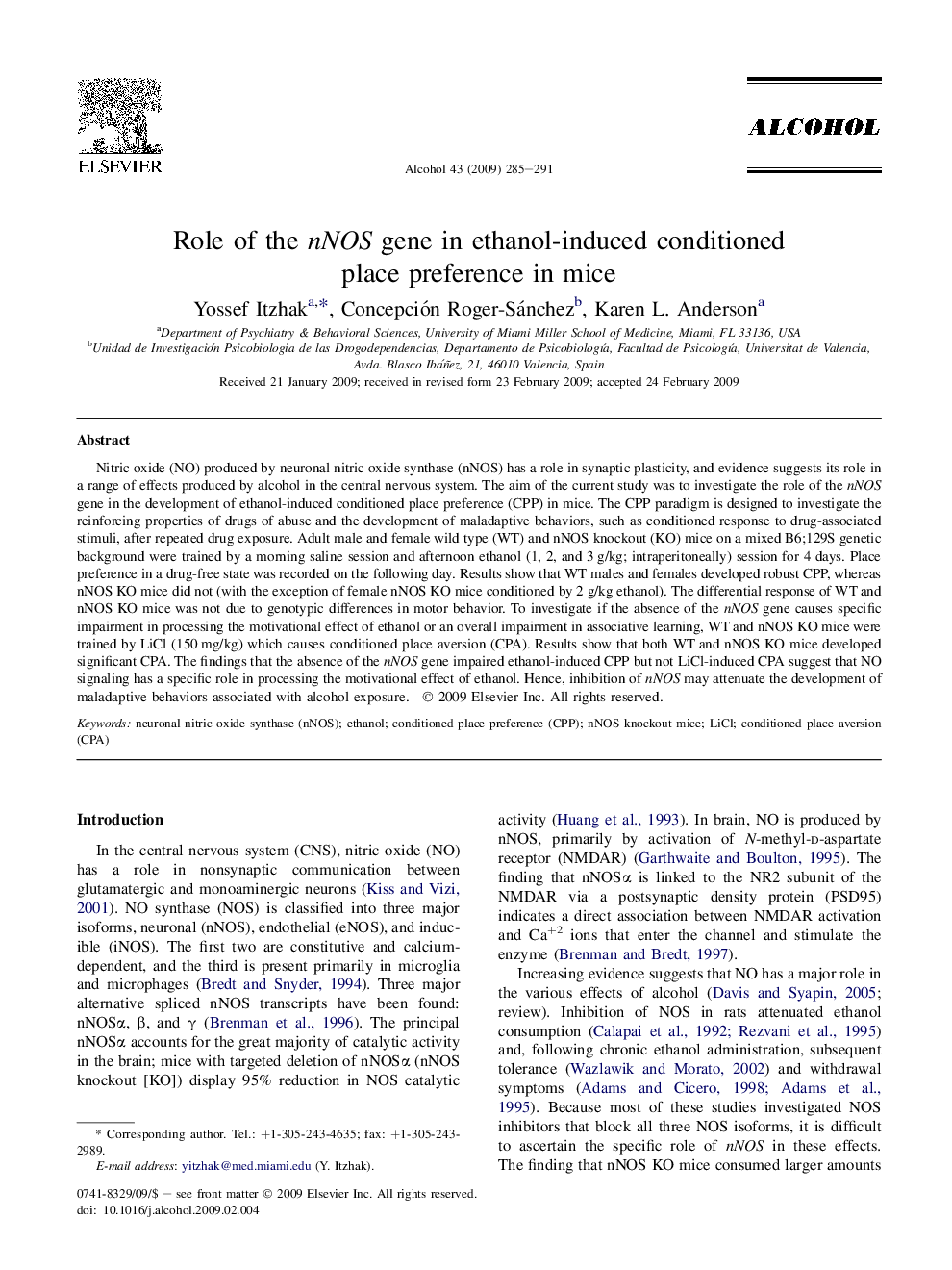| کد مقاله | کد نشریه | سال انتشار | مقاله انگلیسی | نسخه تمام متن |
|---|---|---|---|---|
| 1067235 | 948877 | 2009 | 7 صفحه PDF | دانلود رایگان |
عنوان انگلیسی مقاله ISI
Role of the nNOS gene in ethanol-induced conditioned place preference in mice
دانلود مقاله + سفارش ترجمه
دانلود مقاله ISI انگلیسی
رایگان برای ایرانیان
کلمات کلیدی
موضوعات مرتبط
علوم زیستی و بیوفناوری
بیوشیمی، ژنتیک و زیست شناسی مولکولی
زیست شیمی
پیش نمایش صفحه اول مقاله

چکیده انگلیسی
Nitric oxide (NO) produced by neuronal nitric oxide synthase (nNOS) has a role in synaptic plasticity, and evidence suggests its role in a range of effects produced by alcohol in the central nervous system. The aim of the current study was to investigate the role of the nNOS gene in the development of ethanol-induced conditioned place preference (CPP) in mice. The CPP paradigm is designed to investigate the reinforcing properties of drugs of abuse and the development of maladaptive behaviors, such as conditioned response to drug-associated stimuli, after repeated drug exposure. Adult male and female wild type (WT) and nNOS knockout (KO) mice on a mixed B6;129S genetic background were trained by a morning saline session and afternoon ethanol (1, 2, and 3Â g/kg; intraperitoneally) session for 4 days. Place preference in a drug-free state was recorded on the following day. Results show that WT males and females developed robust CPP, whereas nNOS KO mice did not (with the exception of female nNOS KO mice conditioned by 2Â g/kg ethanol). The differential response of WT and nNOS KO mice was not due to genotypic differences in motor behavior. To investigate if the absence of the nNOS gene causes specific impairment in processing the motivational effect of ethanol or an overall impairment in associative learning, WT and nNOS KO mice were trained by LiCl (150Â mg/kg) which causes conditioned place aversion (CPA). Results show that both WT and nNOS KO mice developed significant CPA. The findings that the absence of the nNOS gene impaired ethanol-induced CPP but not LiCl-induced CPA suggest that NO signaling has a specific role in processing the motivational effect of ethanol. Hence, inhibition of nNOS may attenuate the development of maladaptive behaviors associated with alcohol exposure.
ناشر
Database: Elsevier - ScienceDirect (ساینس دایرکت)
Journal: Alcohol - Volume 43, Issue 4, June 2009, Pages 285-291
Journal: Alcohol - Volume 43, Issue 4, June 2009, Pages 285-291
نویسندگان
Yossef Itzhak, Concepción Roger-Sánchez, Karen L. Anderson,